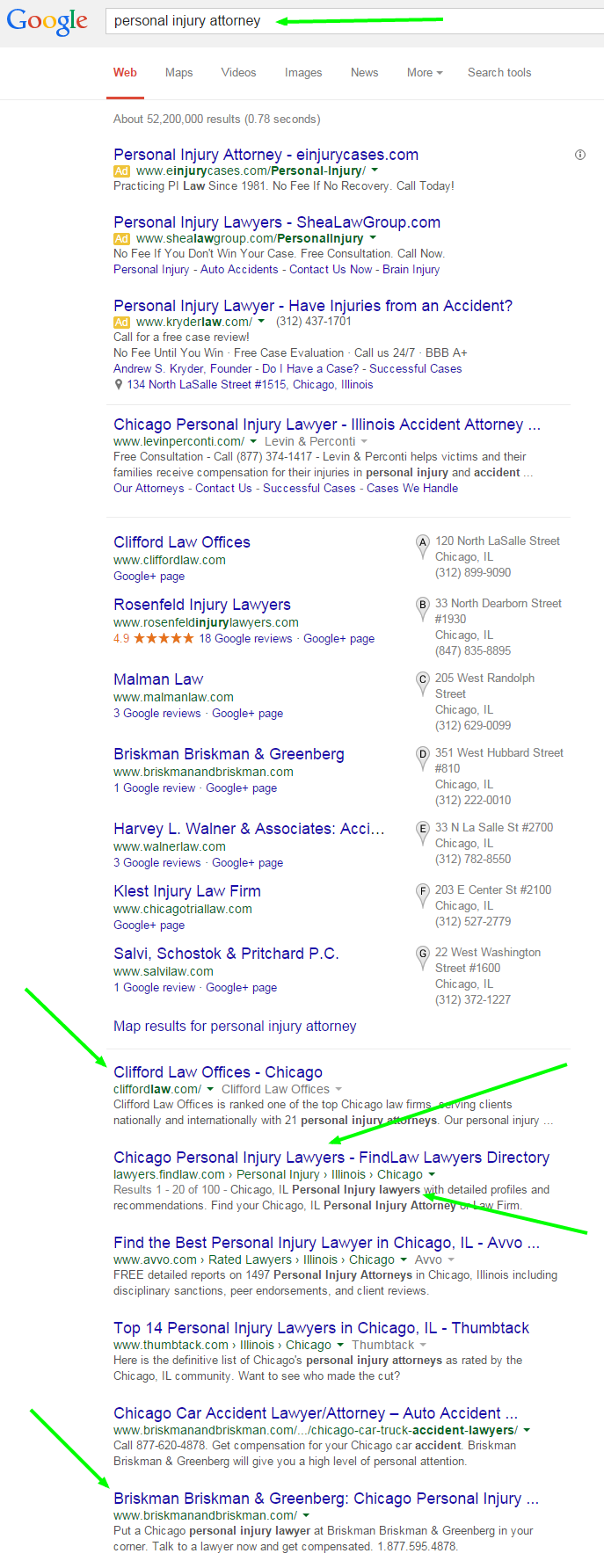Once you have a pretty good understanding of who your target audience is and what they need, you can begin to research some of the keywords they might use to search.
If you’ve ever used Google before, you’ve probably noticed that as you begin to type, Google tries to finish your answer for you.
Google calls this feature Autocomplete:
Autocomplete predictions are automatically generated by an algorithm without any human involvement, based on a number of objective factors, including how often past users have searched for a term.
Our algorithm automatically detects and excludes a small set of search terms. But it’s designed to reflect the diversity of our users’ searches and content on the web. So just like the web, the search terms shown may seem strange or surprising.
In other words, Google use their fancy math to generate predictions based, in part, upon what other people have searched for in the past.
Put simply, if it’s being predicted, it’s probably been searched for by many others before.
As SEER Interactive’s Wil Reynolds has demonstrated, “not hitting enter” on a Google search is a simple and quick trick for finding new keyword ideas:
Simply, take some of your top keywords and plug them into Google. Don’t hit enter and make sure there is a space after your keyword. You’ll see keywords that are already on your list but you’ll also get a glimpse of what else people are searching for when they type in your keyword.
This simple method can be particularly effective for doing some very basic keyword research/discovery for targeting potential personal injury clients:

This example is particularly useful as it demonstrates a few search queries they may earn meaningful traffic that don’t include the terms lawyer, attorney or law firm.
This goes back to a previous point that many of the research queries that your target audience may be using have nothing to do with hiring a personal injury lawyer.
I suspect that at least some readers will conclude that searches like these aren’t sufficiently targeted toward potential clients. Once again, this conclusion stems from a basic misunderstanding about how many people use search engines. Many more people are performing research queries than are merely performing a business look-up. That’s not to say that look-up searches aren’t important, they most certainly are. But they tend also to be exponentially more competitive. Which means, that in order to appear prominently is search results, it’s going to take a lot of time and probably a quite a bit of money too.
While research queries may be counter-intuitive to the way you might think about how potential clients search for you, they’re also counter-intuitive to your competitors. Which means that they aren’t as aggressively fought for. Which means, with much less time and money, you can earn prominent positions for these queries.
The truth is that you should attack both the head and tail of your relevant keyword universe.
Another useful tool for performing keyword research is Übersuggest.
Übersuggest takes your base term, add a letter or a digit in front of it, and extracts suggestions for it.
Here’s a spreadsheet I generated from Übersuggest with the base term “how do I file.”
This is a handy way to do some quick and dirty research.
Don’t get too hyper-focused on any particularly keyword. Instead, group related keywords by theme and search intent. If you’re familiar with managing a paid search engine marketing campaign (SEM), think about grouping keywords that you’re targeting organically in much the same was as you would build AdWords Ad groups.
In my opinion, organizing keywords is much more important than most SEO writers tend to discuss. The reason is that it’s counter-productive to create content for every permutation of a particular query. Doing so is more likely to result in duplicate page issues. Furthermore, it makes your site seem silly to visitors. For example, having unique pages for each of the following:
Personal injury lawyer
Personal injury lawyers
Personal injury attorney
Personal injury attorneys
Personal injury law firm
Personal injury law firms
It’s much more important that your pages read naturally. Google, the search engine, is smart and getting smarter. You don’t need to obsessively target synonyms the way that many SEOs did years ago. If you don’t believe me, you can prove it to yourself by searching for these queries.

Notice that a search that includes attorney serves up a variety of results that target lawyer. Furthermore, in many instances, Google lists the term lawyer in bold. Clearly, Google is able to match these simple synonyms.
On the other hand, if you live in a part of the world where there actually is a difference between how the terms lawyer and attorney are used, you should consider that in choosing these words on your pages. Ultimately, you should use the language of your target audience.
Okay, one more tip. You can use your AdWords campaigns to harvest new queries. You can do this by including broad and phrase match keywords in your campaigns and the reviewing the matched queries report.
It’s important to note that this costs money and can impact the performance of your paid search campaigns. Nonetheless, it can be an exceptional way to find new keyword ideas that you know people are actually using.
